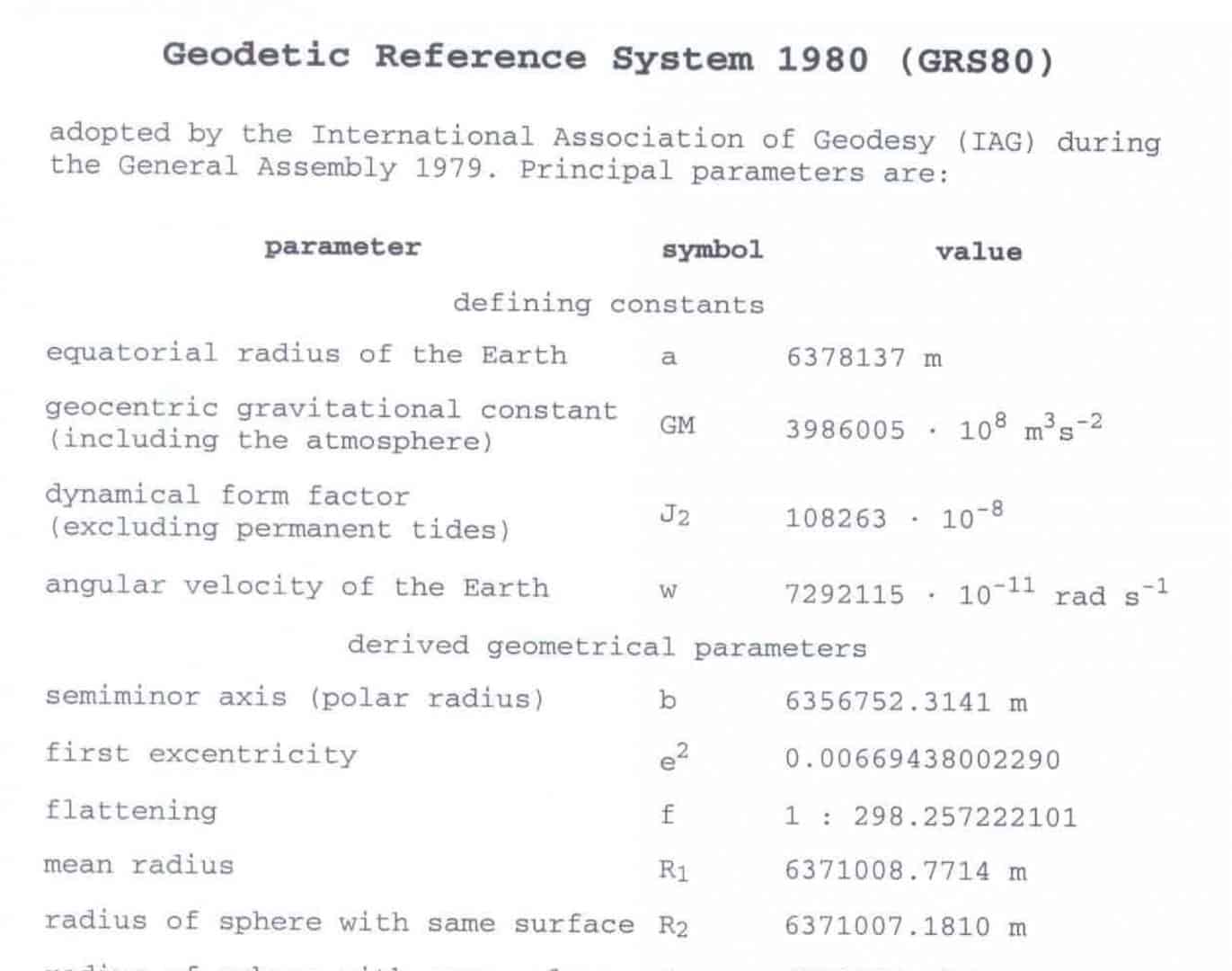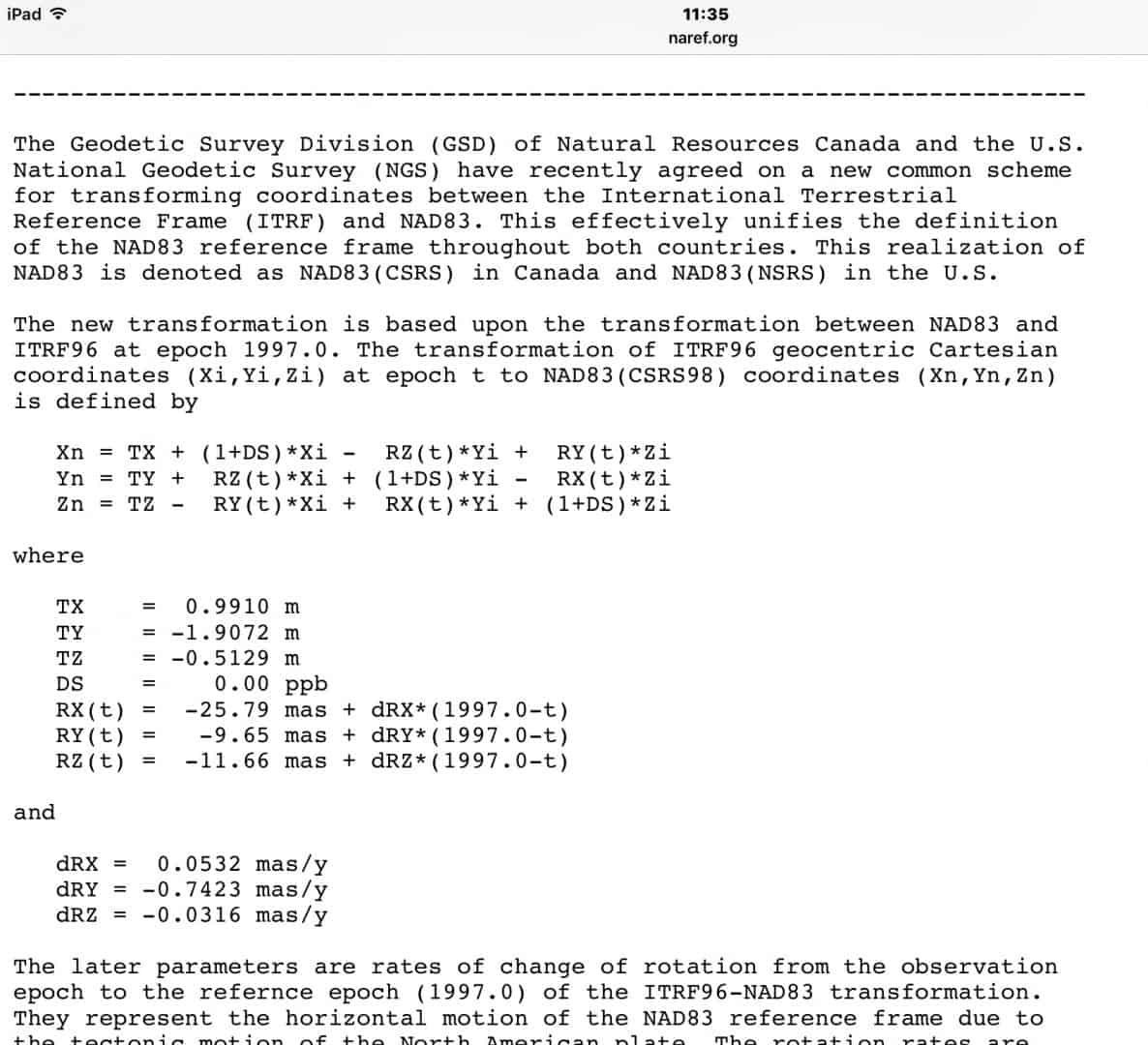The NGS released the linked NSRS Modernization News document yesterday where they have officially announced the names of the 2022 reference frames and datums. They also confirmed they will be plate fixed systems:
https://geodesy.noaa.gov/datums/newdatums/NSRSModernizationNewsIssue6.pdf
Rather clumsy names, but good to see progress in defining them.
Soon the control datasheets will get even longer :scream:
gschrock, post: 410645, member: 556 wrote: Wonder if we will refer to the first NAPGD realization as "nap-gad 22"?
I prefer "nap-good".
What was wrong with NAD22 or NAD2022 ?
Wait, isn't NA-TeRF22 the succesor to NAD83 and NAPGD22 successor to NAVD88?
Yes, that is correct - NATRF for NAD83 and NAPGD for NAVD88.
Now when your client asks you why your coords differ from the other guy, you can give them the latest and greatest acronym and that'll splain it!
gschrock, post: 410685, member: 556 wrote: My guess is that it will not be based on the NAD83 ellipsoid (and noting that this is more along the lines of ITRF/IGS) they wanted to change naming convention...
ITRF coordinates are translated to LLh using the GRS80 reference ellipsoid as are NAD83. For ITRF see: http://itrf.ign.fr/faq.php?type=answer
I liked SNARF (Stable North American Reference Frame) due to its whimsical name.
Given the confusion expressed by many when referring to the multiplicity of NAD83 versions, a completely different name may eliminate confusion.
Cheers,
DMM
GeeOddMike, post: 410725, member: 677 wrote: ITRF coordinates are translated to LLh using the GRS80 reference ellipsoid as are NAD83.
The dimensions are the same, but isn't the origin about a meter different as well as a rotation?
I've never seen "eccentricity" spelled "excentricity" before, but apparently it's a legit if archaic spelling.
GeeOddMike, post: 410725, member: 677 wrote: a completely different name may eliminate confusion
sure, maybe.
I vote that we make the EPOCH date Carl Friedrich Gauss's 245th birthday: 30 April 2022.
Because I think he was a cool guy and that should be enough to outweigh anybody else's stupid suggestions.
1 January 2020 (which is what I expect them to use) is just too boring and predictable. We need to honor math and geodesy heroes more prominently.
I'd have probably gone with NAD22 and NAVD22, but that's just me.
There was a difference in the ellipsoid from NAD27 and NAD83. Doesn't seem to be a good reason to upend 90 years of convention.
gschrock, post: 410778, member: 556 wrote: not longer need to do that transformation...
They said plate-fixed. There will be a short time when the transformation isn't significant, but at a couple cm per year NA plate velocity, we will soon need at least a simple translation. Maybe sooner for the Pacific guys?
Will OPUS then give all three sets, IGS, NAD83, and NATRF numbers to aid the transition?
However we might want to celebrate the heroes of geodesy, I sure don't want to add to the equations above additional programming complexity of dates other than 1 January. While ITRF96 has been superseded the values above give a sense of the magnitudes of the differences with mas meaning milli-arcseconds.
Cheers,
DMM
News Flash!
From the Huffington Post:
[INDENT]ÛÏNGS Officials told they are not allowed to publicly talk about Plate Shift. America is the center of the earth and as such all coordinates will be fixed with respect to the Capital Dome in Washington. All references to new reference frames is being removed from NGS websites and employees told to not to discuss modernization plans. By presidential decree NAD83 and WGS84 are defined to be identical and there is no need for further coordinate enhancements."[/INDENT]
Thanks GSCHROCK for the graphic. It answers the question I had in this thread:
https://surveyorconnect.com/community/threads/difference-between-nad83-and-wgs84-projected-out.329243/
There are also some nice graphics available in the Power Point presentation made by Dru Smith at the fall AGU meeting posted here. Third from the top:
https://geodesy.noaa.gov/web/science_edu/presentations_library/





